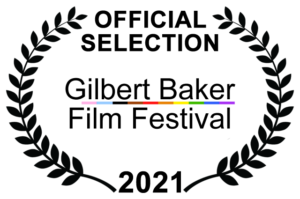I’m so proud to have been selected for the Third Edition of the Burnt Video Art and Experimental Film Festival. My work was included in Burnt 3.4, which shows in November 2021.
Rites and othering
To be on the wrong side of the lens. On the margins of a memory, a story, a social construct. To explore through intimate and symbolic portraits, one’s foundational story, sexuality, trauma and healing.
Six short films are part of the latest program for Burnt Fest’s third edition. Films that revolve around parental relationships, transgenerational fears, identity and impulses and try to make sense, through gestures of peeling, of smoothing, of confrontation of characters, their journey of different realizations.
Remembering only the photographs in their materiality while stripping them from their surroundings, the photographs become more vivid than the lived memories.
“To find the day of 21st” by Kieko Ikehata, explores the memory taken over by images, by photographs that erase what isn’t in them and limit one’s past to bits and pieces of what remains seen. It examines how recorded images can become more vivid than our original memory, an impure historical evidence.
The time when a photograph is taken, a photograph is seen and then the time when it’s looked at again.
How much can one rely on the photographs? And how does one make sure a day is remembered when it does not have a signifier? Ikehata’s film is a mixture of archives and landscapes but also the narrator’s memories and those of their mother. A blend of past and present where mother/daughter realities, memories and their physical existence in a space in different times, intertwine.
The overlap in Masha Vlasova’s “Her Type”, is that between the filmmaker and their father. By the manipulation of a photograph through a masculinizing application, Masha now resembles her dad. The space between the mother’s gaze and the photograph on the phone becomes that of a romantic recollection, a longing for a deceased lover. A space where intimate desires surface and tension between the subject and the camera is palpable.
Where the object of desire is digitally fabricated in “Her type”, the object of fear is genetically transmitted in Nat Portnoy’s “42 Dni/ 42 Days”. Portoy’s film is that of confrontation of the self, not only with the disease but also with her surroundings. It is a body on the margins trying to accept its fate and desires, wondering if they are one’s own. How can one feel at home in the world when they feel failed by their body and lineage and through their visual diary, try to regain control?
Such is also the case of “Letter to my mother” by Amina Maher. A work of art consisted of many layers being stripped and shaved and peeled, where the protagonist tries to regain control over their narrative and trauma.
Amina Maher’s relationship with her mother had already been captured on film by Abbas Kiarostami in Ten. In one of the scenes, Amina as a child expresses that “we must grow up before we belong to ourselves”. When sexual abuse is denounced in “Letter to my mother”, those words hold the grown ups accountable of their failure to protect as well as their denial in order to preserve the spectacle of normalcy.
In “1975 of my mother and me” by Jun-Yuan Hong, this spectacle of marital bliss under patriarchal domination is questioned by the filmmaker who tries to merge memories and fictional narrative in order to make sense of, or question and critique a past. The film unfolds as vignettes of a woman’s life, through which we feel the impotence and inability to change one’s fate as if driven by external forces in addition to traditions and customs .
A fate manipulated by some external hand, such as in #DaughterFail by Krissy Mahan in which the small characters are gliding through the screen on a piece of paper navigating a preconceived path that situates them in a bigger narrative.
November 2021
c.partamian
***************************************
Also November 2021:
Gilbert Baker Film Festival 24 November – 12 December 2021
2021 Gilbert Baker Film Festival offers specially curated LGBTQ+ content including mixed short film programs, feature-length film screenings, moderated live watch parties, Q&As and plenty of opportunities for audience engagement.
Each week of live programming will accommodate for different global regions/time zones to extend the reach and accessibility of this festival as per the vision of the festival to connect people and reach marginalized, isolated, rural LGBTQIIA+, Sapphic, Achillean, or Diamoric communities worldwide.
